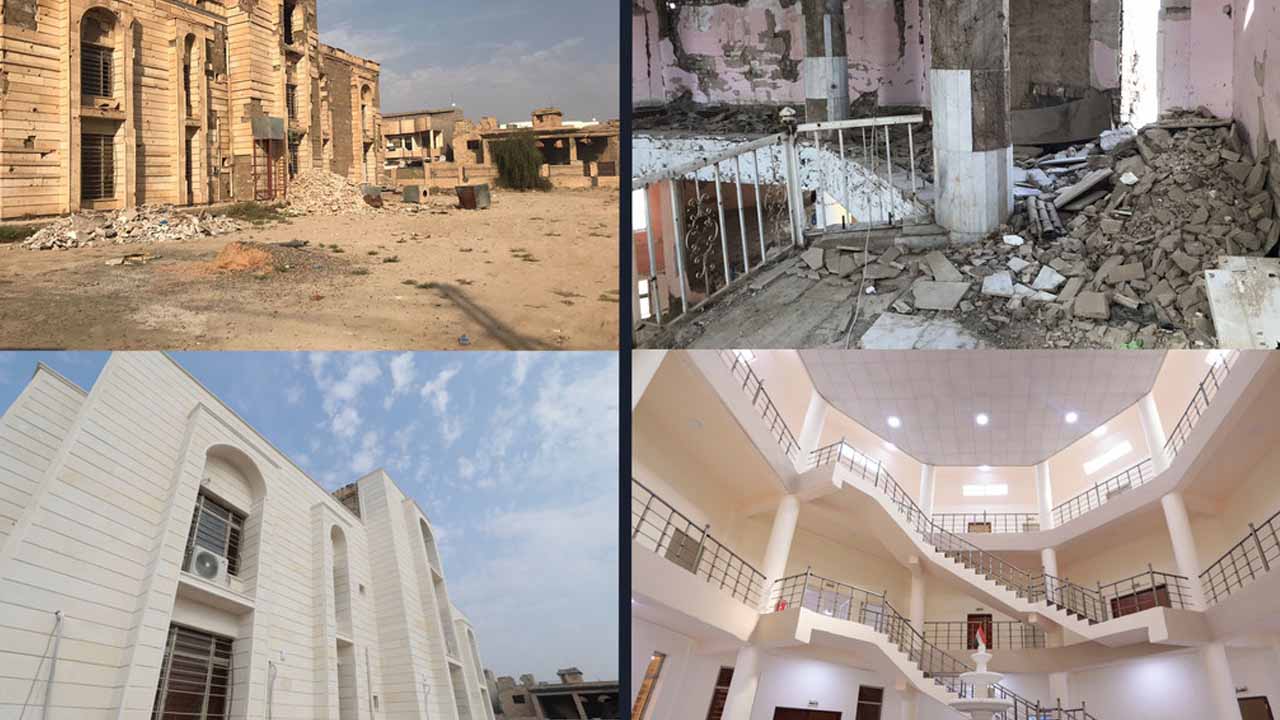On 25 December, the Ministry of Youth and Sports, the Governorate of Anbar and UN Population Fund (UNFPA) re-opened the Ramadi Youth Safe Space, which was used as a prison by the Islamic States in Iraq and Levant (ISIL) during the war. The Youth Safe Space is now a place for girls and boys to receive life and leadership skills, and peacebuilding and edutainment activities.
Originally, the building was a House of Youth under the Ministry of Youth and Sports management. It was a special place for young people of Anbar and the community to build friendships and learn new skills in music, arts, science. Back in 2014, the place was used as a prison by the ISIL during the war. The building was severely damaged.
After the liberation of the territories, young people in Anbar decided to bring the building back to its original purpose and make it a youth-friendly place. In 2018, UNFPA helped the youth rehabilitate two rooms for peace-building activities. As the demand for youth services grew among communities and youth, UNFPA with support from Canada, the Governor of Anbar and UIMS, completed the rehabilitation of the Youth Safe Space. Young volunteers were the ones who led the process and made decisions about how to make the place more accessible for all young people in the surrounding communities, including the most vulnerable.
Speaking at the event, the Governor of Anbar, Ali Farhan Al-Dulaimi, thanked UNFPA for the continuous support and investment in the young people in Anbar.
Rita Columbia, the UNFPA Representative in Iraq, highlighted the importance of empowering youth and engaging them in community life. “I am very proud of the young volunteers who had a dream and made it a reality,” she said.
Among others, the opening ceremony was attended by Salem Al-Zamanan, Kuwaiti Ambassador to Iraq; representatives of the Ministry of Youth and Sport; the Anbar Directorate of Youth and Sports; and representatives of civil society and young people.
An estimated 4,640 children travelled to Iraq or Syria, either alone or with their families, to join the so-called Islamic State. Since the fall of the terrorist group, many of them live in displacement camps under deplorable conditions. They have not only been victims of recruitment or trafficking, but also witnessed extreme violence and indoctrination.


























